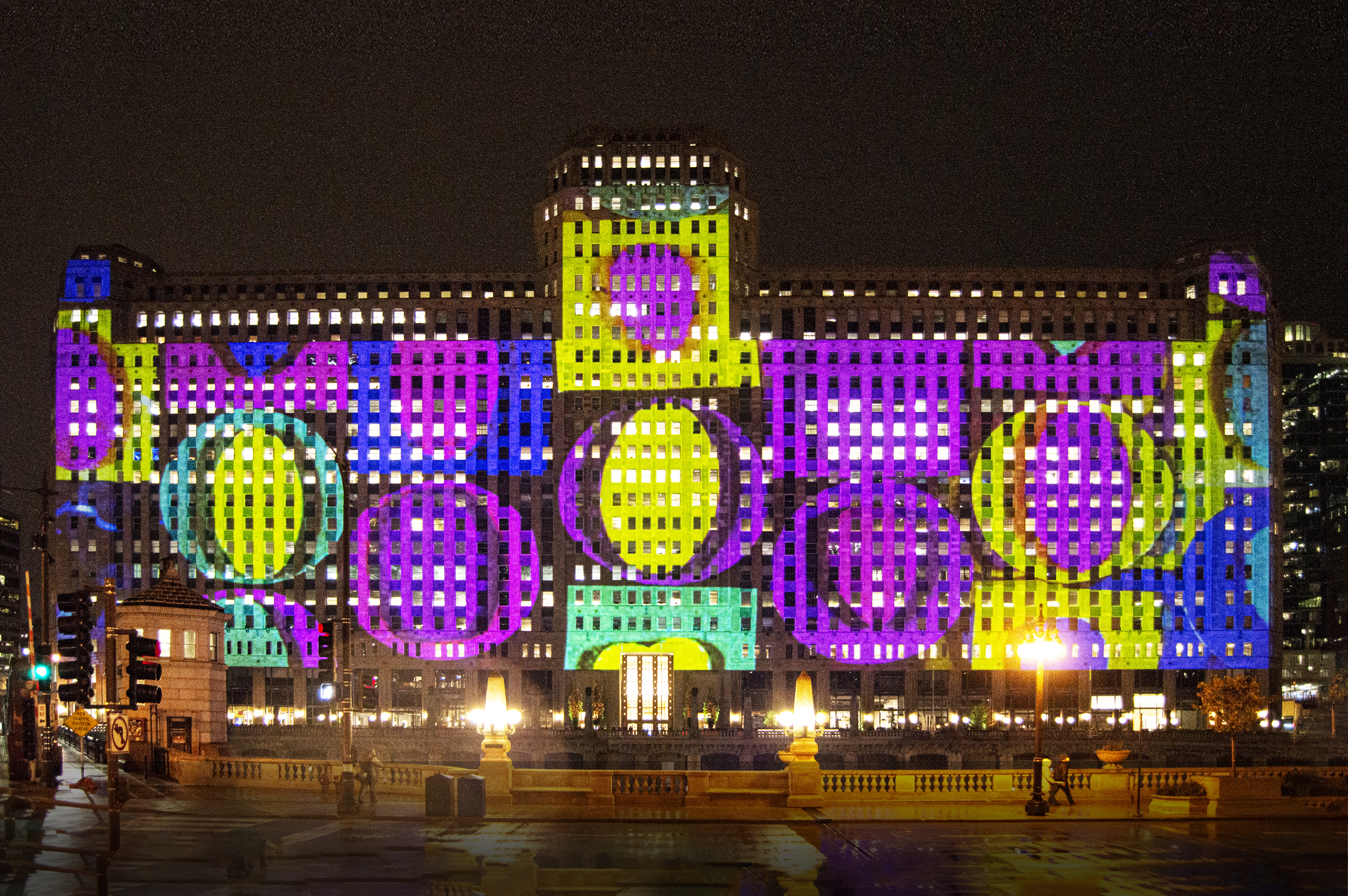Showcasing the Abilities of Artists with Disabilities in 2020

2020 marked Arts of Life’s 20th Anniversary year. Over two decades we have grown to run two art studios supporting 60 artists with intellectual and developmental disabilities in Chicago-land. For those marginalized by disability, Arts of Life supplies the rare opportunity to find meaningful work and a sense of community inclusion that can ultimately lead to dignity, freedom, choice, and a sense of belonging. There was much to celebrate, but instead our plans were cancelled and the year seemed doomed to end in a whimper. Instead, we were able to celebrate the strength and resilience of our community through a remarkable new milestone.
Over the course of the year, our studios were closed for a full six months at the direction of the State. Our staff rallied and created a virtual program, providing a way for our artists to gather daily for artmaking, professional development, and community. Ipads were procured through a grant and many of our artists learned for the very first time how to navigate the technology and the zoom platform. That was just one of many firsts. All artists regardless of location were able to collaborate for the first time on poetry, produce a poetry book, and host a poetry reading. They were able to tour galleries and studios across the country. Guest artists from New York, California, Kentucky, and Texas were able to zoom in and share their practices. At a time when this already marginalized stood to become more isolated than ever before, instead their horizons were broadened.
And then we were selected for the most highly visible collaboration in our organization’s history. In November 2020, our artists’ work was showcased alongside pieces by two of our city’s most renowned cultural institutions, The Art Institute of Chicago and The Joffrey Ballet, in Art on theMART – the world’s largest digital light projection in the world.
Our projection featured five of our studio artists’ work in a custom animation designed to interact with the unique architecture of theMART building along the Chicago River. It knit together colorful, abstract images into a dynamic moving image and a unique soundscape.
Over two million people viewed the program and Arts of Life experienced a 34% increase in Google searches and over 3,000 impressions as a direct result of this high-profile exhibition.
Why does this matter? Partnerships and the exposure they bring are invaluable for our artists. Every successful partnership and exhibition provides opportunities to showcase their abilities. More than that, these successes provide opportunities to build their personal wealth and professional esteem, ultimately reinforcing pride and dignity among them in their artistic careers.
If you have a family member or friend with autism, down syndrome, or another disability, you know that most individuals with disabilities rely on federally funded programs to live. Unfortunately, Illinois is currently ranked 47th of 50 states in services and support for Americans with disabilities. Even if you are fortunate enough to receive state support, you are often presented with a narrow field of options. Independent day programs like Arts of Life serve as a bridge to community building while providing vital services that foster skill development, social interaction, and vocational training. For many of our studio artists, their work at Arts of Life is the first opportunity they have to become self-directed members of a positive, supportive community. Since our studio environment is designed to promote equal ownership, artists are naturally encouraged to exercise self-determination as part of daily studio life.
Not only that, inclusive art-making is increasingly regarded as a best practice in the field of disability and an invaluable tool for promoting skill development, confidence, self-esteem, and economic participation. The arts provide meaningful social engagement and community inclusion. However, many believe that artistic engagement for artists with disabilities is merely therapeutic, and only 36% of the public believes that people with intellectual disabilities are capable of being leaders. These stereotypes limit the development of professional careers for artists living with disabilities.
Collaborations like Art on theMART play an essential role in our work to change society’s misconceptions by promoting our artists as true professionals by showcasing their abilities and facilitating the exhibition and sale of their artwork.